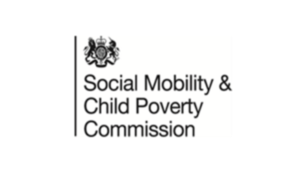Elitist Britain? report published
The Social Mobility and Child Poverty Commission has published a report on social mobility: Elitist Britain?

The report, which is published today from the Social Mobility and Child Poverty Commission (SMCPC), examines who is in charge of our country. The report’s research highlights a dramatic over-representation of those educated at independent schools and Oxbridge across the institutions that have such a profound influence on what happens in our country.
Few people believe that the sum total of talent in Britain exists in just 7% of our country’s schools and less than 2% of our universities. The risk is that the more the few dominate our country’s leading institutions, the less likely it is that people believe they can make a valuable contribution.
Some key findings:
-
research conducted by SMCPC found that 65% of people believe ‘who you know’ is more important than ‘what you know’, and 3 quarters of people think family background has a significant influence on life chances in Britain today
-
71% of senior judges, 53% of diplomats, 50% of members of the House of Lords, 45% of public body chairs, 44% of the Sunday Times Rich List, 35% of the national rugby teams and 33% of the England cricket team attended independent schools (compared to 7% of the population as a whole)
-
75% of senior judges, 59% of the cabinet, 57% of permanent secretaries, 50% of diplomats, 47% of newspaper columnists, 44% of public body chairs, 38% of members of the House of Lords and 12% of the Sunday Times Rich List attended Oxbridge (compared to less than 1% of the population as a whole)
-
59% of the Cabinet and 33% of the Shadow Cabinet attended Oxbridge compared to less than 1% of the UK population as a whole
The Rt Hon Alan Milburn, the Chair of the Commission, said:
We in the Commission hope this report prompts a re-think in the institutions that have such a critical role to play in making Britain a country where success relies on aptitude and ability more than background or birth.
To confront the challenges and seize the opportunities that Britain faces a broader range of experiences and talents need to be harnessed.
The risk, however, is that the more a few dominate our country’s leading institutions the less likely it is that the many believe they can make a valuable contribution.
A closed shop at the top can all too easily give rise to a ‘not for the likes of me’ syndrome in the rest of society.
Contact Social Mobility and Child Poverty Commission
Social Mobility and Child Poverty Commission
Sanctuary Buildings
20 Great Smith Street
London
SW1P 3BT